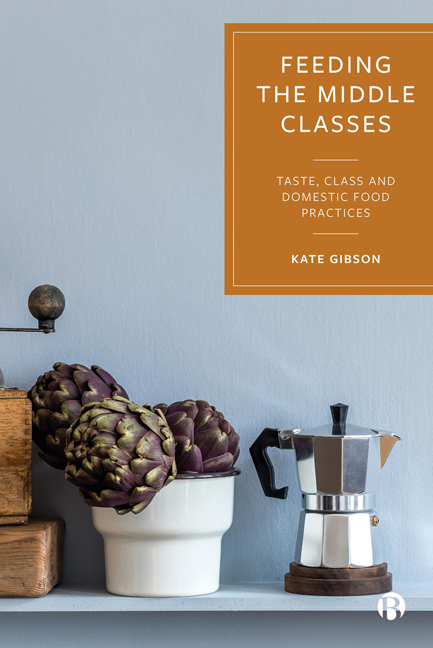Book contents
- Frontmatter
- Contents
- List of Figures and Table
- Acknowledgements
- 1 Introduction
- 2 Class, Consumption and the Domestication of Food
- 3 Talking Food: Classed Narratives, Social Identities and Biographical Transitions
- 4 Homemade Food: Individualized Processes of Household Investment
- 5 Culinary Capital: Knowledge, Learnt Practice and Acquired Taste
- 6 Conclusion
- References
- Index
5 - Culinary Capital: Knowledge, Learnt Practice and Acquired Taste
Published online by Cambridge University Press: 27 March 2024
- Frontmatter
- Contents
- List of Figures and Table
- Acknowledgements
- 1 Introduction
- 2 Class, Consumption and the Domestication of Food
- 3 Talking Food: Classed Narratives, Social Identities and Biographical Transitions
- 4 Homemade Food: Individualized Processes of Household Investment
- 5 Culinary Capital: Knowledge, Learnt Practice and Acquired Taste
- 6 Conclusion
- References
- Index
Summary
Bourdieu argued that taste in food ‘reveals the deepest dispositions of the habitus’ (1984: 190). Taking this as a starting point, this chapter explores how taste is not merely a matter of individual preference and choice, but a reflexive accumulation of generative learning. That is, orientations to food are continually learnt. I look to the past, present and future to explore how the sample mobilized learnt attitudes via familial social relationships alongside a disposition to gather and accrue capital as a means to do ‘good’ food.
The participants I worked with clearly appeared to prioritize the strategic importance of setting up intergenerationally produced foodrelated dispositions. I consider how the parents in the sample construct narratives around the importance of instilling ‘good’ food habits in their children. This social training centres on delivering children a healthy and diverse spectrum of foods. Yet, there are tensions in participant framings of ensuring their children are open to all foods and encouraging a disposition to make discerning choices clearly emerges as valued. In an era where childhood obesity is often moralized as a literal embodiment of bad parenting, the ways in which participants prioritize the production of ‘healthy’ children can be read as a reflection of their identity as parents. To elaborate on this further, I look towards the household meal, since it figures in so many narratives as an occasion where participants seek to ‘do’ family. I demonstrate how the socially constructed ideal of the family meal appears as a backdrop against which participants navigate between controlling, managing, and encouraging diverse tastes via the sociality of eating. Building on literature which frames the household meal as an occasion for the production, and display, of family, I show how participants negotiate everyday temporal constraints to stage household meals in order to reproduce notions of good taste via the exchange of food in a very particular domestic setting.
Embodied knowledge
I want to start this chapter with a glance towards public health messaging to consider how participants make sense of and engage with health as embodied individuals and how knowledge is situated in relation wider discursive frameworks about the performance of valued identities through food.
- Type
- Chapter
- Information
- Feeding the Middle ClassesTaste, Class and Domestic Food Practices, pp. 104 - 139Publisher: Bristol University PressPrint publication year: 2023



